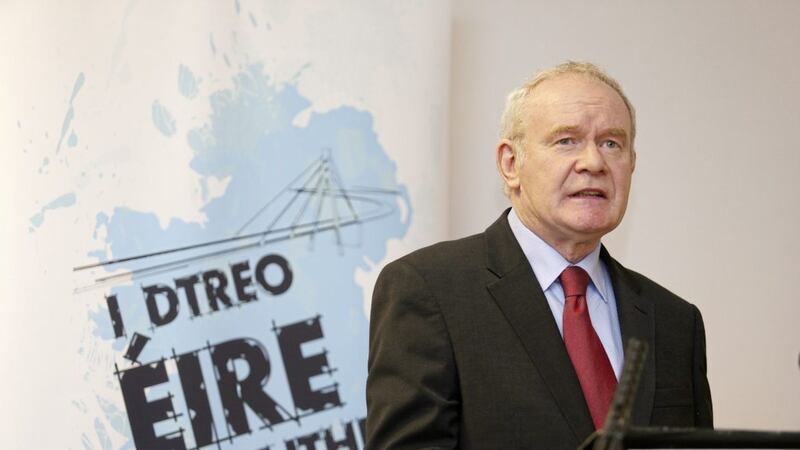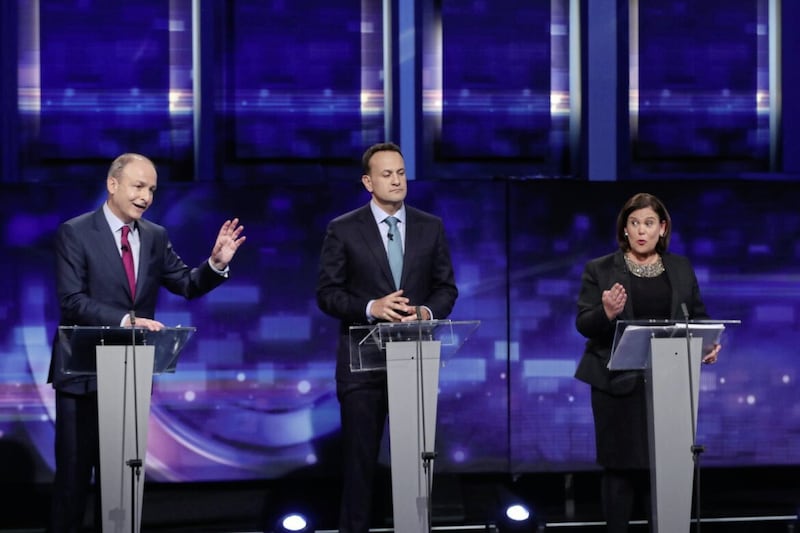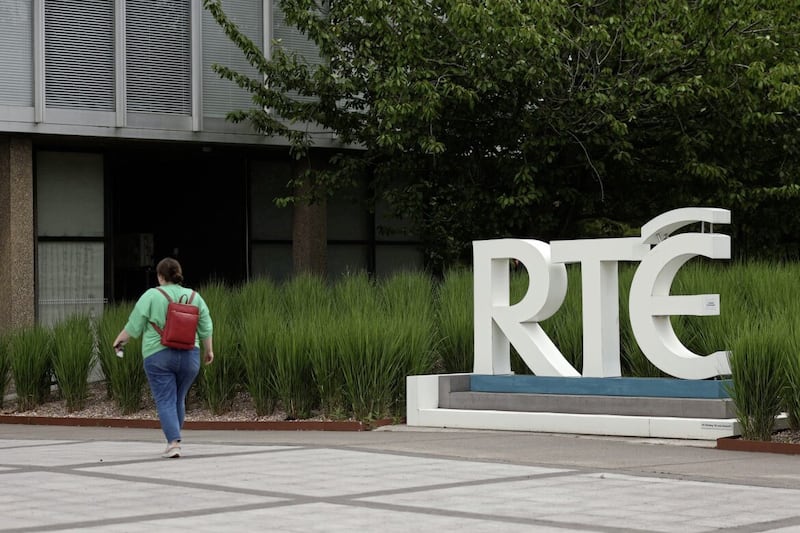IT was in the merry month of May in the year 2000, before he was elected MP, that Boris Johnson interviewed the late Martin McGuinness in The Spectator.
My principal memory of the piece was his attempt to convey the Derry man’s pronunciation of the word “British”. Johnson re-wrote it in semi-phonetic terms as “Bratash”, although I’m not sure how that may have gone down on the banks of the Foyle.
The interview was conducted at Stormont and, reading it again lately, I was struck by the impact on Boris of seeing so many symbols and remnants of the days of the British Empire and unionist domination as he made his way to see an IRA leader who had gone on to become education minister in a power-sharing Executive.
There was the defiant statue of Edward Carson along with a plethora of other items reflecting a previous era.
However, Boris also noticed “something rather odd”, namely a sign in the Irish language.
He presumably had help with the translation, because he correctly interpreted it as a demand for privacy since a meeting was taking place behind that particular door.
But Gaeilgeoirí would be upset at his suggestion that the notice had a barking tone. And it seems nobody drew his attention to the magnificent chandelier presented to the British royal family prior to the Great War by Kaiser Wilhelm of Germany.
I had a somewhat similar experience to the prime minister-in-waiting (he hopes) as I made my way through the Stormont estate much later, on March 26 2015. “The location is awash with symbolism,” I wrote afterwards.
My mission was also to interview Martin McGuinness, who had by now become deputy first minister. We were meeting not at Parliament Buildings but at Stormont Castle, where the first minister at the time, Peter Robinson, was also based.
In the old days, it was the official residence for successive prime ministers of Northern Ireland. By this stage, Sir James Craig and Lord Brookeborough must have been turning in their graves, especially the latter who, we are told, boasted that he “had not a Roman Catholic about his own place”.
As you might expect, our two interviews were rather different in content.
The exchanges between Martin and Boris are best characterised as “whataboutery” as they exchange charge and counter-charge about the conduct of the IRA and the British army during the Troubles.
The key question on Johnson’s mind was whether the “war” that republicans had been waging was now over. McGuinness responded by saying, in effect, that the IRA would never use that kind of language because it would be seen as dancing to a unionist tune.
Johnson comes away from the encounter feeling that, despite his moral reservations about the peace process and negotiating with people he regarded as terrorists, it was better to have former IRA activists getting involved with the day-to-day work of government than trying to destroy the state by violence.
It’s an interesting insight into the mind of a man who will have a crucial role in all our destinies on these islands if he lands the Big Job in the coming weeks.
For all his rhetoric, the conclusion to be drawn is that, like most politicians, Johnson is a pragmatist and hopefully that might come to the fore when push comes to shove over Brexit.
My own interview with Martin McGuinness formed the basis of a chapter in a book I wrote about Sinn Féin which was published in autumn 2015.
On my way into his office I noticed one of his staff reading that morning’s Irish Times where an opinion poll showed that, south of the border, Sinn Féin was level with Fine Gael at 24 per cent, leaving Fianna Fáil well behind at 17 per cent.
However, a more recent poll in the same publication last month showed FF at 26 per cent and SF at 16 per cent while FG held first place at 29 per cent (a more recent survey in the Sunday Times had FF in front).
The obvious conclusion is that Sinn Féin has declined in popularity since the departure of the old Adams-McGuinness leadership.
Mind you, at the time of our interview Martin had no worries about the new generation taking over and he said: “I think Mary Lou is fabulous, she is absolutely a brilliant representative for Sinn Féin as are Pearse Doherty and Pádraig MacLochlainn and all the others.”
Based on that assessment, the decline in Sinn Féin’s popularity in the south may not be the fault of the new leadership at all but a reflection of climate change on the political scene, as distinct from the environment.
Vladimir Putin suggests right-wing populism is the order of the day. Time will tell.
Ddebre1@aol.com








